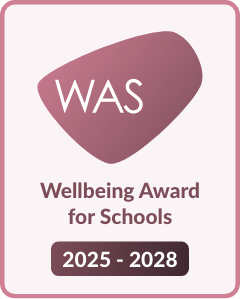Resilience Award
Practical steps for parents on how to use the language of resilience at home.
Since September, with the support of their parents and teachers, a huge number of our pupils have been awarded resilience stickers. Many of our younger children have led the way and their list of achievements is growing every day.
Tying shoelaces, getting dressed on their own and using a knife and fork are all important life skills which enable pupils to become more independent and feel a real sense of achievement.
Older pupils have impressed us all with their achievements too. Cooking foods from 4 different cultures, reading 10 books in half a term, designing and creating useful objects, researching and presenting a favourite subject to an audience, to name but a few of their impressive achievements. There are still stickers and house points to be awarded and we look forward to giving out more this term.
Every day, and with the support of their teachers and parents, our pupils also continue to develop resilience in many aspects of school life.
Language of Resilience
The language of resilience is one of the benchmarks that we will be continuing to work on throughout the year. Language that parents and teachers use with children plays an important role in helping them develop their resilience and have strategies in place to be able to work through difficult or challenging situations.
The Power of 'Yet'
Many of our pupils designed inspiring resilience posters at the beginning of the year and the Power of Yet featured in many of them.
In this Ted Talk, Carol Dweck explores the Power of Yet and explains how praising effort is more effective in promoting resilience than praising attainment or innate intelligence, as effort requires perseverance and application.
Carol Dweck – The power of believing that you can improve
Reframing Language to Help Develop Resilience
The way adults respond to events often determines children’s reactions to setbacks or failure. Below are some examples of alternative comments that may be helpful in fostering a positive and flexible mindset with children when they are facing challenges.
“I’m never going to be good at this!” – “I can’t do this yet, but I am determined to do better.”
“I lost that match, I was useless” – “I lost that match, but I will train harder to win next time.”
Encouraging children to adopt statements such as these below can also be helpful.
“I can’t do it …yet” or “They’re doing better than I am …..for now”
“I don’t completely understand…yet, but I am learning more each day.”
Language Prompts
Positive language prompts can also be used effectively to promote emotional resilience.
The statements and questions below can be used when talking to children about activities and tasks that they have taken part in and outside of school.
Wow, that is a good mark. You must have worked hard to be able to achieve it.
What have you learned today?
Did you make a mistake today that you learned from?
What were you persistent at today?
What can you learn from this?
What will you do the next time you are in this situation?
Well done, you worked hard.
What do you like about your work?
Do you remember when you couldn’t........and now you can.
Strategies to encourage children to manage their thoughts can be a key tool in helping to develop resilience. Encouragement to use positive statements about their work is beneficial.
I can always get better.
I may not have succeeded this time, but I’ll try again next time.
Failure is a natural part of learning.
The following useful prompts could be used when looking through your child’s work or discussing other tasks and activities.
What did you learn when you were doing this activity?
In what way was it difficult?
Did you make any mistakes? What were they?
What skills did you have to use during this activity?
Had you used any of these previously?
If you had to start it again, would you do anything differently next time?
What advice would you give to another pupil who was just starting this task?
‘You can’t do it… yet’.
The 7 C's of Resilience
In this video, Kenneth Ginsburg, explains how the 7 Cs can help young people become resilient.
Confidence
Competency
Connection
Character
Contribution
Coping
Control









